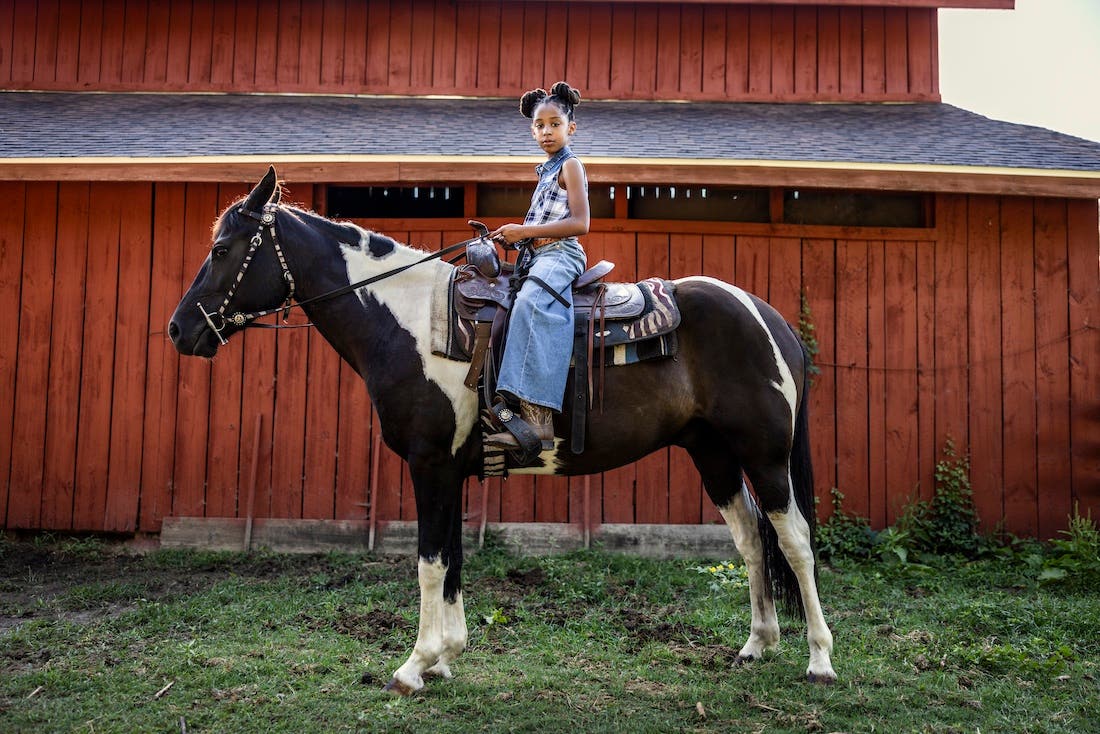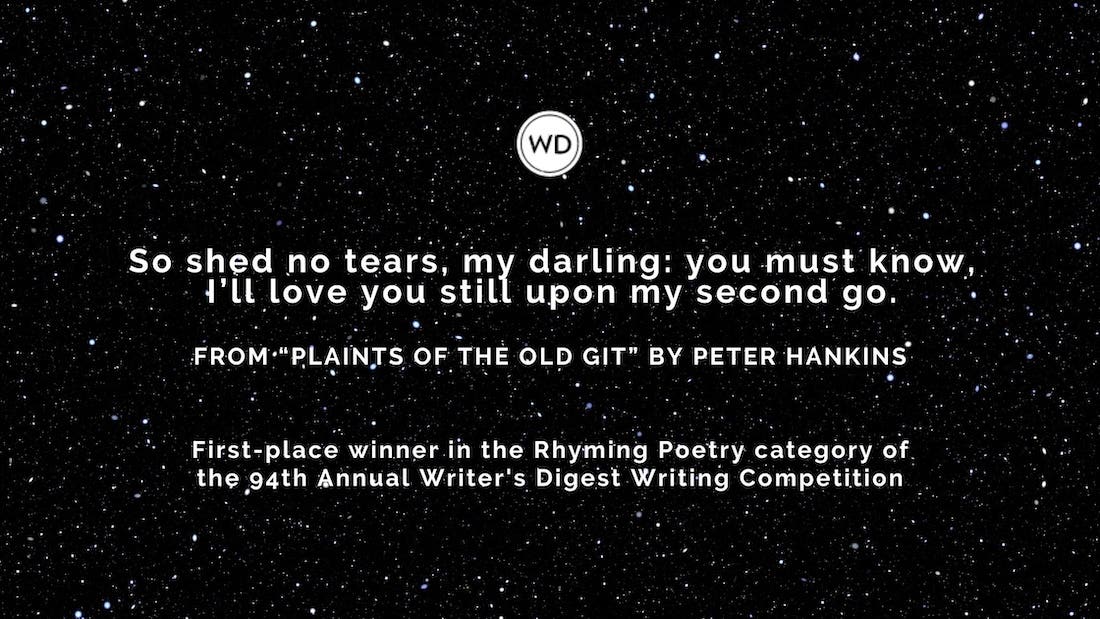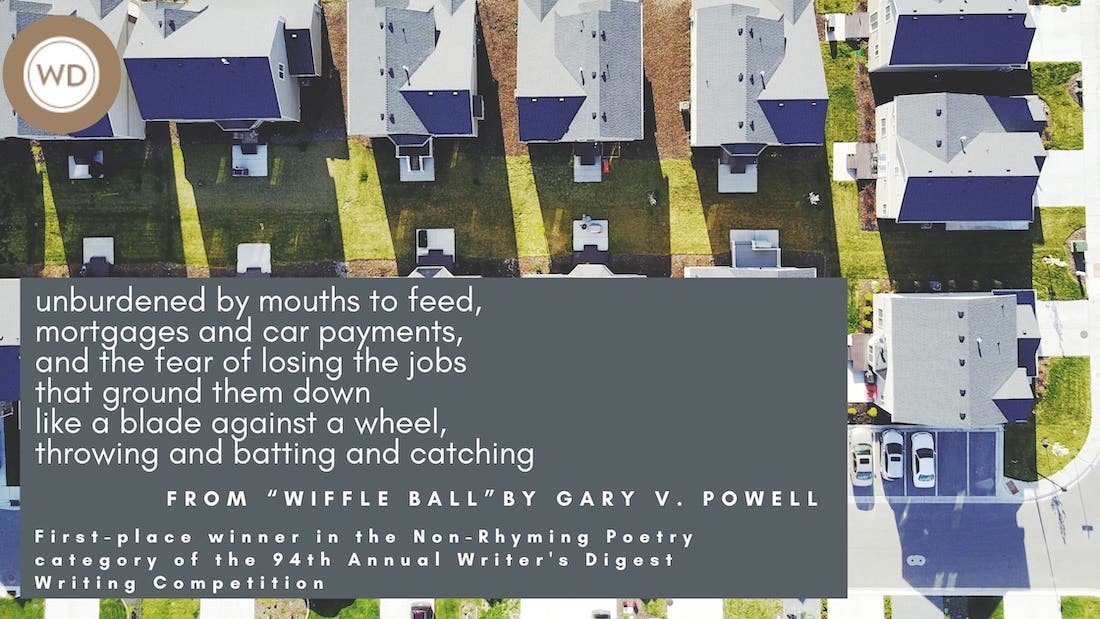Whitney Hill: Self-Published E-Book Awards Winner
Whitney Hill, winner of the 8th Annual WD Self-Published E-Book Awards, talks fan fiction, creating her own stories, and why she chose to self-publish.
As a child, Hill was an avid reader, encouraged by her grandmother—who was always reading—and mother. She found herself entranced by the worlds of science fiction and fantasy, but there was a glaring issue: There was never a Black girl on the covers of the books she loved. She was never able to see herself as the main character.
Hill explained, “Especially being biracial, there’s even kind of a smaller niche where you don’t really see what it’s like for the character to have to straddle kind of two worlds in that way.”
Like most, she wrote short stories from a young age. Then she found herself writing fan fiction, which introduced her to story mechanics—like developing plot—while borrowing someone else’s characters. It also gave her the opportunity to get direct feedback from readers and learn how to incorporate that feedback into her craft.
But “after a while, I got tired of borrowing [characters] from other people and wanted to do my own thing,” she said.
This led her to write the Shadows of Otherside, an adult urban fantasy series that features Arden Finch, a private investigator and sylph, who is determined to practice her forbidden magic and take control over her life. The first book in the series, Elemental, focuses on Arden’s struggle with her evolving identity, where she fits in with her community, and what it will mean for her to gain her freedom.
Elemental won the Grand Prize in the 8th Annual Writer’s Digest Self-Published E-Book Awards. Hill’s winnings include $5,000 and a trip to the 2021 Writer’s Digest Conference in New York City.
Hill began working on Elemental in 2018 as a part of the yearly NaNoWriMo challenge to write 50,000 words in November. She said the deadline helped take an idea that she’d been incubating for several years and get it down on paper. A self-proclaimed pantser, she admitted to half-hearted attempts at outlining and losing the thread of the plot somewhere around chapter 5. But that didn’t mean she gave up. “That was part of the NaNoWriMo charm, I think, just like, ‘I have a word count, I have to put something down.’”
It helped that Arden’s story took place in the region of North Carolina known as the Triangle, including the Raleigh, Durham, and Chapel Hill areas.
Hill said, “This is an area that did kind of capture me. Basically, every time I go out driving around town, I’m inspired … [it] just really helps with capturing detail going out with the notes open on my phone and just looking at who’s passing through a space. What does the space look like? What does it smell like? What are all the sensory details? How do I make that real?”
This also made it easier for her to tackle other world-building challenges, like creating a unique magic system that both connected with the reader and also laid the foundation for the next several books in the series.
Hill was initially set on the path of traditional publishing. She attended the Writer’s Digest 2019 Annual Conference and participated in the Pitch Slam event, where she got several requests from agents to see the manuscript. She also spent time researching and cold-querying agents. But after six months of great feedback but no offer, Hill said she did a lot of soul-searching and reevaluated what her goals were for publication. She knew that she would want to be involved in every aspect of the publishing process. There was an appeal in knowing that she did everything for her manuscript and that its failure or success rested solely on her shoulders.
The path to self-publication, she said, “was basically deciding to choose myself rather than waiting for somebody to pick me.”
From the start, she viewed her self-publishing career as a business. Knowing that it would take a lot of time and effort, she quickly figured out how to devote time to her day job, her personal life, and her self-publishing career.
“I don’t do very much else in my day-to-day,” she said. “It’s a conscious choice. I decided that right now, my focus is going to be on two things: my day job and my writing. The job funds the writing. The balance comes in just carving out that time from everything else.”
She knew that some poorly produced self-published books contribute to a stigma around books that aren’t traditionally published.
“There are just so many parts in the book publishing process that require some investment. That’s part of why it is such a privilege to publish, because not everybody can afford to throw a few thousand dollars for editing and cover design and everything else.”
This investment came in the form of hiring professional editors, designers, and using her own marketing knowledge to have Elemental meet her personal standards and get it into the hands of readers.
In doing so, she’s found a lot of satisfaction in her ability to engage directly with her readers. Putting a lot of time and effort into social media has allowed her to meet her readers where they are, and she’s seen a lot of growth due to word-of-mouth advertising, to which she attributes the majority of her sales.
It’s a lot of work, but she is motivated more than most.
“What I focus on is becoming a bestselling author. That is what drives me. That’s what I do. That’s what I go for. And that’s what I focus all of my energy on, all my attention [on]. How is what I’m doing now going to be another step toward becoming a bestselling author? Baby steps. It’s going to take years.”
Find Whitney Hill’s books at her website, WhitneyHillWrites.com.








